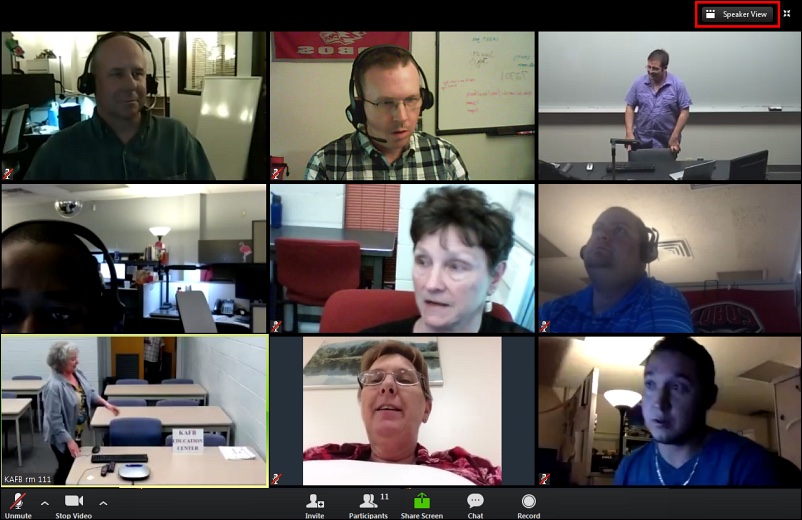This is the first article in a series about how the current crisis will transform the aviation industry. Today, we'll focus on the virus’s impact on automation and digitalization. We'll also investigate the future of conferences and face-to-face meetings.
How will the coronavirus transform aviation?
-

-
Many of you probably spent the past few days, and weeks, the way I have. First came the emails and text messages, asking if Conference X and Meeting Y were really going ahead as planned. Then came the reassuring emails from the event organizers, hotels, and airlines, affirming that everything was business as usual, apart from a few additional hygiene measures. Then came a flurry of calls and texts about whether it was a good idea to attend Conference X, followed by a lot of googling about cancellation policies.
If your week has been anything like mine, you’ve probably been asking yourself a lot of questions: will my flight take off, and if so, will I be allowed to board? Can we move the meeting online? How do I get a refund? What happened to all the soap?
And if you’re anything like me, you’ve probably also been asking yourself what the broader impact of the coronavirus will be, not just for the aviation industry, but also in more fundamental terms. Unless we get some unexpected good news, it looks like many of us will be hunkering down for the foreseeable future. The short-term impact is becoming clearer by the day. What’s less obvious is how this experience will change the way we work, socialize, and spend our free time in the long run.
Predicting the future is always a dangerous pursuit, particularly at a time riddled with so many uncertainties. Over the next few weeks, we’ll investigate how the current crisis will fundamentally transform nearly every dimension of the aviation industry. We’ll start by looking at something on everyone’s mind: automation, digitalization, and the future of face-to-face meetings.

-
Automation takes command
While automation and digitalization are nothing new, the current crisis will kick both of these processes into high gear, touching many aspects of our lives. What are the implications for aviation?
First and foremost, the pandemic will lead to a comprehensive overhaul of passenger processing guidelines. A recent article in MIT’s Technology Review predicts that travel restrictions may be around for longer than we’d like. Even if we bring the virus under control in the coming months, we will see regularly reoccuring outbreaks, with some cities affected more than others. Freedom of movement will remain patchy and subject to sudden change. Airports and airlines will need to develop sophisticated mechanisms to determine whether passengers are eligible to fly, based on their citizenship, health status, and recent travel history. That data will likely be stored in a digital token, which will make current health declaration forms look quaint by comparison. It will also raise big privacy and data storage issues.
Second, efforts to minimize the spread of germs will finally force airports and airlines to go paper-free, as more passengers will prefer to use their own personal devices rather than paper boarding passes and bag tags. While we’re at it, why don’t we get rid of all the other weird leftovers from the last century. Why, for example, do many airlines still issue paper lounge invitations? And for heaven’s sake, what’s up with all those dot-matrix printers out there spewing out passenger manifests?
Third, while paranoid germophobia will gradually mellow into a calmer sense of precaution—just as it did in Asia, following SARS—in the near term it will make customers more hesitant to interact with strangers in close proximity. That poses a big challenge to taxi and ride-hailing companies, whose business model depends on throwing complete strangers into a confined space. In the short run, that may lead to design changes in the vehicle fleet, such as installing plexiglass dividers that separate drivers from passengers, as is common in the UK. In the long term, it will likely accelerate the rollout of automated vehicles and the disappearance of human drivers. That has big implications for ground access.
Along similar lines, as passengers become more tech-savvy and germ-aware, we'll see more staff reductions in frontline jobs such as gate agents. With increasing digital literacy, customers will also become more demanding, pushing airlines to upgrade their online capabilities. When a flight gets cancelled, successful airlines make it easy for travelers to rebook online—or, better yet, automatically send them a new boarding pass. Less successful airlines subject passengers to an endless ordeal, compelling them to wait in line before speaking to an overwhelmed and underpaid staff member. As IROPS goes fully digital, those jobs will disappear.
The takeaway: Just as September 11th forced airports and airlines to overhaul their security procedures, so too will the coronavirus oblige us to question many of the basic processes that we take for granted. The past few weeks have put airports’ and airlines’ IROPS to the test. In many cases, the results have been dismal. As “irregular” operations become the new normal, we’re in for a major rethink.

-
Rebalancing virtual and F2F meetings
With conferences, classes, and meetings getting cancelled left and right, many of us have started to move our face-to-face interactions online. Video calls are by no means a big innovation: in one form or another, they’ve been around for decades. What’s different right now is that there’s no viable alternative to telecommunication if we want to keep our social lives intact.
The jury’s still out whether virtual interaction will remain as popular once F2F meetings again become possible. Social scientists have long argued that virtual forms of communication—be it by video, email, or phone—are a useful substitute for face-to-face meetings. But they can’t entirely replace them. Calling a friend or colleague is a good way to tide you over for a certain period of time—say three to six months—when it’s not possible to meet up in person. But virtual substitution only goes so far. Human relationships are built on trust, and that trust develops through physical, face-to-face encounters. Phone calls might keep the relationship going for a while—but if you only talk or text for years on end, trust will decline, and the relationship will wither. Moreover, most people also hesitate to discuss sensitive topics online, opting to postpone those discussions until the next physical meeting. You can’t beat the convenience of a phone call, but it’s difficult to replicate the intimacy of meeting up in person.
What effect will this period of isolation have on the way we balance F2F and virtual meetings? That depends on two big factors. Mass utilization of videoconferencing technology will undoubtedly lead to improvements that make virtual interaction more reliable, more convenient and—to put it simply—more “real.” And as people become more adept at using that technology, we may see a paradigm shift in sociability. In other words, we’ll become more comfortable with the idea of “meeting” a friend for coffee, even if that means sharing a virtual space rather than a physical one.

-
Rethinking conferences and trade fairs
I’m optimistic about the prospect of improved teleconferencing—but I’m less convinced that we will happily redirect all our social interaction online. Nevertheless, in the near term we’ll undoubtedly witness a seismic shift in sociability that strongly favors online interaction. And as technology improves, companies will take a harder look at their employees’ travel plans. Will going to that conference deliver a tangible benefit, or is it just an excuse to get away from the office? They will also reevaluate the importance of F2F meetings. Is the topic so sensitive and urgent that it needs to be discussed in person, or would a video call suffice?
These are both fair questions. As a frequent keynote speaker, I have to admit that some events are more impactful than others. Successful conference organizers put a lot of time and effort into curating an event that brings the right people together to discuss the right things. Less successful organizers rely on volume, and on the attractiveness of the event location, coming up with generic topics in desirable destinations. Who wouldn’t want to fly to Hawaii to discuss digital transformation?
But we shouldn’t underestimate the value of these live events. They’re especially important for professionals living in smaller cities and countries, who may not have access to the same talent pool and knowledge base as people working in, say, New York or London. The same is true for niche professions and specializations. If you’re the only person who does your job within a 200km radius, conferences are essential for improving your capabilities, updating your skills, and maintaining your professional network. And unless we see a major generational change in social behavior, important deals will still likely be made offline and in person.
Last but not least, let’s not forget the importance of offsite events for our mental health. Getting out of the office, and out of our daily routines, can work wonders in terms of raising employees’ energy, dynamism, and motivation.
The takeaway: the year 2020 presents the aviation industry with unprecedented challenges. It’s unlikely that current ways of doing business will survive intact after such a major shock to the system. Successful airports and airlines will evaluate which parts of their business model are the most resilient, and which are the most vulnerable to change. At the same time, they will investigate emerging opportunities—there will be many of them—that come out of this crisis.
Next time, we’ll look at the impact that bailouts will have on airports and airlines—and what governments might ask in return for all those billions.
In the meantime, here’s a question for all you readers out there: how is your organization dealing with virus-related challenges? And what do you think could be some positive outcomes of the current crisis? I’m interested to hear your thoughts—write to me by clicking here.
-
-
-
-